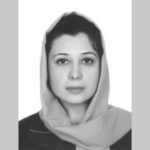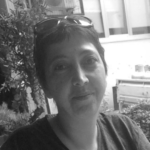
The following policies apply to SPACE International Journal of Space Studies in Architecture and Urban Design published by SPACE Studies Publications. Before submitting your article, please read these policies carefully in order to ensure you have totally and correctly followed all the requirements.
All articles published in SPACE International Journal of Space Studies in Architecture and Urban Design undergo a rigorous double-blind peer review by at least two referees. Each paper submitted is initially being screened by the Editorial board of the journal in order to find out whether the quality and content of the paper suit the aims and scope of the journal or not. If yes, then the paper is sent to at least two anonymous reviewers. SPACE International Journal of Space Studies in Architecture and Urban Design does not permit the authors to recommend peer reviewers.
Each submitted manuscript is evaluated on the following basis:
Therefore, all reviewers are asked to provide a clear assessment of the issues given above and they use a series of decision categories in the assessment of submitted papers. These decisions and their explanations are provided in the table below.
Table: Decision categories of SPACE International Journal of Space Studies in Architecture and Urban Design
Decision Category | Explanation of the Category |
Accept | The editors and the reviewers decide that the paper meets the standards of the journal and that it should be accepted for publication without the need for further revisions. There may still be some minor editing tasks required at the proofs checking stage. |
Accept with minor revisions | The assessment of the editors and the reviewers is that the paper makes a strong contribution to the field, thus it has a significant merit but there are some further revisions required to meet the standards of the journal which also maximises its contribution. The revised version of the paper is normally assessed by editors and not sent out again for peer review. |
Accept with major revisions | The assessment of the editors and the reviewers is that the paper has potential but there are significant further revisions required for the paper to meet the standards of the journal. Authors are clearly informed of the required revisions that needs to be made. In all cases the revised version of the paper is sent out for further peer review and if possible, by involving the original reviewers of the paper. |
Reject and resubmit | The assessment of the editors and reviewers is that the paper does not currently meet the standards of the journal, but still, there is potential in the paper if it is revised substantively. A resubmitted paper always starts the peer review process from the beginning, thus sent out for full peer review again. |
Reject | The assessment of the editors and reviewers is that the paper is unlikely to meet the required standards of the journal OR the paper does not meet the required standards of the journal even following revision OR a resubmitted or revised paper has failed to proceed with the next stage of the decision process* |
Managing Editor Immediate Reject | When a paper does not meet the required standards of the journal the editors can decide to reject it immediately and not sent it out for peer review. This may occur when the paper
In all cases except plagiarism check, at the discretion of the editors may consider, author’s resubmitting the paper. |
* According to the editorial policy of the journal a paper should advance to at least the next level of decision in each round of submission. For example, a paper’s revised version which was previously accepted with major revisions should receive a new decision of at least ‘accept with minor revision’. This applies at all levels of decisions.
The comments as well as the decision requests by peer reviewers will be considered by the Editor when making a decision, but ultimate responsibility for acceptance or rejection rests solely with the Editor-in-Chief.
All submitted articles in this journal have undergone rigorous double blind peer review by at least two referees, based on initial editor’s screening. More information regarding SPACE International Journal of Space Studies in Architecture and Urban Design peer review process is available.
Authors can choose to publish open access in this journal.
Please read the Instructions for Authors for information on how to submit your article.
The steps of the peer review process are as follows:
We welcome genuine appeals to either editor decisions or reviewer comments. However, you will have to provide both strong evidence and information in response to the editor’s decision and reviewers’ comments.
If you wish to appeal editor’s decision or reviewers’ comments, please submit an appeal letter to the journal’s online editorial office. Please address this to the editor in-chief and be sure that you explain the basis for the appeal clearly. You should:
In the case that the author/s have reasonable objections to the review/s, it will be taken into consideration seriously by the Editorial Board. If there is a doubt about the objectivity or quality of the review, the Editor-in-Chief will assign additional reviewer(s).
Additional reviewers may also be assigned when reviewers’ decisions are contrary to each other (accept or reject) or otherwise substantially incompatible.
The final decision on the acceptance of the manuscript for publication rests solely with the Editor-in-Chief.
Maintaining confidentiality of the peer review and editorial decision-making process at all levels is a requirement as well as complying with data protection regulations (including GDPR). The invited reviewer should declare any competing interest before assessing the manuscript. SPACE International Journal of Space Studies in Architecture and Urban Design does not permit reviewers to involve a colleague as a co-reviewer for an article and to share the manuscript.
In the process of investigating any ethical query, the submitted manuscript, author, reviewer/s, and any other person/s who is involved will be treated in confidence. It should be known that during an investigation there may be a need to share information with the third parties, such as the ethics committee and/or the authors’ institution at the discretion of the Editor-in-Chief.
SPACE International Journal of Space Studies in Architecture and Urban Design is a Subscription-based (non-OA) Journal. The publisher owns the rights to the articles in this journal. The articles can be read by subscribing to the Journal either individually or institutionally. In order to use the articles in any way, permission from the publisher must be obtained. Optional Open Access publication is available in this journal. See Optional Open Access publication if you are interested in OAP.
SPACE Studies Publications needs publishing rights from each author for their article in order to publish it. Therefore, authors are asked to sign the ‘Copyright Transfer Agreement’ which grants SPACE Studies Publications the necessary publishing rights. This agreement should be signed and uploaded while submitting the paper. However, the agreement will be void and null if the work is not accepted so that not published in the Journal.
In the agreement, the author transfers or in other words “assigns” copyright to SPACE Studies Publications which is the owner and publisher of the journal.
Assigning the copyright enables SPACE Studies Publications to:
After assigning copyright, the author still retains the right to:
Optional open access (OA) publication is possible and available in this journal with a standard Article Publication Charge (APC).
When an article is published OA, the author retains the copyright in his/her work. The author is asked to sign an author contract which gives SPACE Studies Publications the non-exclusive right to publish the Final Version of the author’s article. The author contract asks for the author’s choice of Creative Commons license, which dictates what others can do with his/her article once the article has been published.
The licenses SPACE Studies Publications offers for open access articles are
CC BY 4.0 | Others can distribute, remix, tweak, and build upon your work, even commercially, as long as they credit you for the original creation. | |
CC BY-NC-ND 4.0 | Creative Commons Attribution-NonCommercial-NoDerivatives 4.0 International License. | This license allows others to download your works and share them with others as long as they credit you, but they can’t change them in any way or use them commercially. |
SPACE Studies Publications’ Open Access article processing charges vary according to the membership level. Details can be found on OA – APC Payment (Open Access Article Processing Charge Payment).
The “Green Open Access Policy” means that the Author has the right to self-archive specified digital versions of the Contribution (which can be updated from time to time) listed below in the table notwithstanding the Exclusive Licence.
According to the Journal’s Green Open Access Policy, the Author continues to keep the non-exclusive, non-transferable, non-commercial right to re-use or deposit digital versions of the Article as specified in the table below:
Version | Author’s institutional/departmental repository | Author’s personal webpage/website | Non-commercial subject repository | Commercial repository/ social media |
SMUR | Any time | Any time | Any time | Any time |
AM | After acceptance | After acceptance | After acceptance | Abstract only + link to the Journal |
VoR | Abstract only + link to the Journal | Abstract only + link to the Journal | Abstract only + link to the Journal | Abstract only + link to the Journal |
The Author accepts and confirms that:
Under the Green Open Access Policy of the Journal, the reuses of the Contribution should include:
While submitting an article to SPACE International Journal of Space Studies in Architecture and Urban Design, there are ethics to be followed by the authors which are as follows.
Sign in to continue
Not a member yet? Sign up now

Administrative Assistant
Deniz Bol is the Administrative Assistant at SPACE Studies, where she supports the day-to-day operations and contributes to the smooth functioning of the organization. Alongside her administrative role, Deniz is an artist with a passion for creative expression. She is currently pursuing her studies at the University of the Arts London (UAL), where she continues to develop her artistic practice. Her organizational skills, paired with her artistic background, make her a valuable asset to the SPACE Studies team, helping bridge the worlds of administration and creativity.
E-mail: denizbol@spacestudies.co.uk

Digital Marketing Consultant
Murat Oktay is the Digital Marketing Consultant at SPACE Studies, where he provides strategic guidance to enhance our digital presence and community engagement. With a keen eye for digital marketing trends and best practices, Murat plays a key role in refining our content strategy, expanding our online reach, and connecting with a wider audience. His expertise in digital tools and innovative marketing techniques aligns with SPACE Studies’ mission as a social enterprise, ensuring that our campaigns are impactful and resonate with our commitment to social responsibility in architecture and design. Outside his work with SPACE Studies, Murat stays at the forefront of digital marketing advancements, continually exploring new tools and sharing his insights with peers.
E-mail: muratoktay@spacestudies.co.uk

Marketing Manager
Santa Noella Matabaro is the Marketing Manager of SPACE Studies, bringing her expertise in strategic planning, community engagement, and relationship-building to the organization’s mission as a social enterprise. With a background in Politics & Law from the University of Kent, Santa combines analytical insights with a creative approach to advancing SPACE Studies’ vision of fostering interdisciplinary dialogue in architecture, design, and urban planning. In her role, she develops targeted campaigns and strategic partnerships, building brand presence and fostering meaningful connections with the community. Santa’s collaborative and people-centered approach enhances SPACE Studies’ impact, aligning with its commitment to social responsibility and innovation in the built environment.

Academic Content Coordinator
Betul Uckan is an architect and dedicated academic with a background in both architectural practice and research. She holds a Master of Science in Architectural Design and a Bachelor’s degree in Architecture from Istanbul Technical University, where she cultivated her interests in architectural theory and design. Betul has gained experience as a research assistant in various universities, contributing to design studios and foundational courses. She has also worked in the field as an architect with projects focused on design, modeling, and construction, and has been involved in notable projects, including Maltepe Piazza and Emaar Square in Istanbul. With her expertise spanning both digital and material architecture, Betul brings a dynamic, interdisciplinary approach to her role as the Academic Programme Coordinator.
E-mail: betuluckan@spacestudies.co.uk

Senior Researcher & Managing Editor
Arghavan Pournaderi is a senior researcher in the field of architectural conservation and restoration, with an academic foundation in architecture and specialized expertise in historic sites and buildings. Completing her PhD at the Art University of Isfahan, Iran, in 2019, her research has contributed to the understanding of Iran’s architectural heritage, with a focus on Isfahan’s urban and architectural evolution during the Safavid period. In addition to her extensive research, Dr. Pournaderi has held academic positions at various institutions in Isfahan, teaching at both undergraduate and graduate levels. Her work extends beyond academia as she contributes to SPACE Studies as Senior Researcher & Managing Editor, where she oversees scholarly initiatives that foster deeper interdisciplinary dialogue in architecture and heritage conservation.

Senior Researcher & Educational Consultant
Gregory Cowan is a Senior Researcher and Educational Consultant at SPACE Studies, where he leads initiatives that bridge academic research and practical application in architecture and urban design. He contributes his extensive experience to mentoring postgraduate students, designing educational workshops, and guiding community-focused projects. Gregory is also a freelance academic at the University of Wales Trinity St David and the University of Westminster, and founder of The Architects Coach. His expertise spans architectural workspace analysis, professional development, and positive intelligence coaching.
E-mail: gregorycowan@spacestudies.co.uk

Senior Researcher
Alison Hand is a Senior Researcher at SPACE Studies. She is a painter and writer with an MA in Painting from the Royal College of Art. Alison’s work focuses on creating absurd, unstable heterotopic spaces and dialogues with painting history. She is currently the Artist in Residence for King’s College London Philosophy Department on the Dreams and Wakeful Consciousness Research Project, exploring themes of time and simultaneity in new work. Alison has received numerous awards for her painting and is currently working with Bloomsbury Publishers on a major essay on Drawing in Contemporary Art. She is also the BA Fine Art Programme Leader at Art Academy London and co-director of Cement Arts. Her role at SPACE Studies involves leading research projects, mentoring junior researchers, and contributing to our artistic and academic initiatives.
E-mail: alisonhand@spacestudies.co.uk

Senior Researcher
Julian Wild is a Senior Researcher at SPACE Studies and the Sculpture Program Leader at The Art Academy London. With over 30 years of experience in creating and exhibiting sculptures, Julian has worked with high-profile clients such as Cate Blanchett and the University of Oxford. A fellow and former vice president (2015-2019) of the Royal Society of Sculptors, his work has been featured at venues like Modern Art Oxford and Chatsworth House. At SPACE Studies, Julian leads research projects, mentors junior team members, and conducts workshops that blend art and urban studies. In his free time, he enjoys attending academic conferences and crafting new sculptures.
E-mail: julianwild@spacestudies.co.uk

Director of Publications & Senior Researcher
Elif Suyuk Makakli (Associative Professor) earned her PhD in Architecture from the Vienna University of Technology, where she studied the impact of technology on architecture under Prof. William Alsop. With extensive experience in architectural practice in Istanbul and Vienna, she is now an Associate Professor at FMV Isik University, focusing on design education and technology. At SPACE Studies, Elif serves as both the Head of Publications and Senior Researcher, guiding scholarly content and contributing to research initiatives. She is dedicated to mentoring and fostering design innovation.
E-mail: elifsmakakli@spacestudies.co.uk

Director of Research
Sanaz Shobeiri is an architect, urban designer, and landscape urbanist, currently a postdoctoral researcher in the Department of Planning at Queen’s University Belfast. Her research focuses on age-gender inclusiveness and the interplay of architectural, historical, political, and sociocultural dimensions in urban spaces, exemplified by her project on city centres in Belfast and Tehran. Sanaz holds a PhD in Urban Planning from the University of Tehran and has a robust portfolio in sustainability and urban theory. As Head of Research at SPACE Studies, she leads innovative research initiatives, fostering collaboration and academic excellence. In her free time, Sanaz enjoys exploring urban landscapes and supporting community development.
E-mail: sanazshobeiri@spacestudies.co.uk

Creative Director
Selin Gulce Sozmen is the Creative Director at SPACE Studies, where she leads the artistic vision and design strategy for the organisation. With a background in graphic design and visual arts, Selin has been instrumental in creating visually captivating books, journals, and event posters. Her role extends to developing and coordinating workshops and creative projects, ensuring that all visual materials meet the highest standards of quality and innovation. Selin’s dedication to creativity and excellence drives the visual and creative direction of SPACE Studies, making her an essential part of the team.
E-mail: selinsozmen@spacestudies.co.uk

Founder & Executive Director
Pinar Engincan is the Founder and Executive Director of SPACE Studies, an innovative social enterprise focused on fostering interdisciplinary dialogue and education in architecture and urban design. With extensive experience as a lecturer and researcher, Pınar holds a PhD in Architecture and has led numerous academic initiatives. Her career includes curriculum development, international collaborations, and research on housing and urban policies. Passionate about bridging academia and community, she champions accessible education and consultancy services, empowering individuals to shape the built environment.
E-mail: pengincan@spacestudies.co.uk